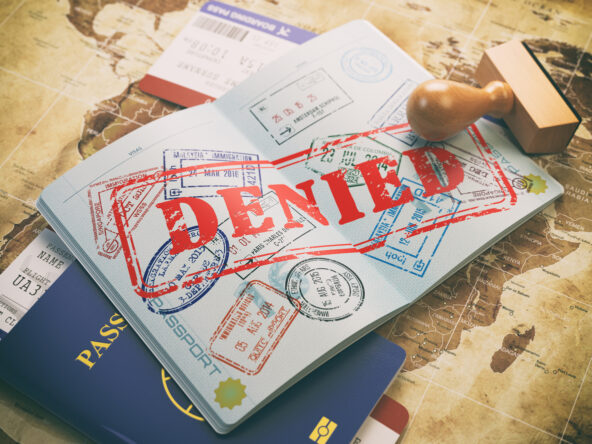We Brits have always prided ourselves on being polite, keeping to ourselves, and generally not causing any trouble.

However, things are definitely changing in the UK, and not for the better. Some of the attitudes that once seemed like quirks have turned sharper, more jaded. Whether it’s down to the cost of living crisis, years of political upheaval, or just the exhaustion of modern life, certain behaviours are creeping in that feel a bit less “harmless banter” and a bit more damaging. These attitudes seem to be gaining traction, and not in a good way.
1. Treating public services as someone else’s problem

With the NHS under pressure, schools stretched, and train strikes a regular fixture, it’s become easier for some to throw up their hands and say, “Not my issue.” But that change, from community concern to quiet detachment, eats away at the idea of shared responsibility.
It’s understandable, especially when people feel let down by leadership. But when we stop caring because we feel powerless, things only get worse. That kind of indifference makes it harder to rebuild the systems we all rely on.
2. Quiet resentment of anyone who’s doing slightly better

The gap between those who are struggling and those who seem to be just about managing feels wider than ever. And instead of empathy, more people are quietly stewing in resentment, side-eyeing anyone with a holiday booked or a new coat. It’s not jealousy in the traditional sense; it’s exhaustion dressed up as bitterness.
The problem is, it turns neighbours into rivals instead of allies, and that mindset makes everyone feel more alone in the long run. Sorry, but your mate doesn’t think he’s better than you just because he left his job stocking shelves at ASDA to work in IT.
3. Assuming everyone’s on the take

There’s been a rise in suspicion, whether it’s about people on benefits, those working from home, or anyone appearing to “get away with” something. The attitude that people are lazy, cheating, or undeserving has become louder. It’s often rooted in frustration with how hard life feels for everyone else. But this assumption erodes trust. It creates an environment where compassion gets drowned out by cynicism, and that rarely leads anywhere good.
The truth is that 37% of people who receive Universal Credit are also working—they’re just not getting enough hours or high enough wages to be able to support themselves, and they need a boost. Don’t believe the government’s propaganda that the benefits system is being exploited by millions of people because it’s not true. There are bad apples, of course, but they’re the exception, not the rule.
4. Believing kindness is a weakness

Somewhere along the line, looking out for others started to feel like something only naive people do. There’s been a slow creep of emotional detachment, as if keeping to yourself and not caring too much is the smart move. The thing is that coldness is a heavy thing to carry. When empathy is seen as soft, fewer people speak up, and more people suffer in silence. It’s a quiet loss, and a dangerous one.
5. Complaining without contributing

British moaning has always been a bit of a national pastime, but lately, the tone has changed. It’s less light-hearted and more fatalistic. Everyone’s fed up, but fewer people seem willing to do anything about it. Of course, not everyone has the energy or resources to fight every battle. But when apathy becomes the default, change feels even further away. It becomes a loop—one we’re all stuck in, together.
6. Talking about “community” while refusing to engage with it

There’s a lot of nostalgia for the idea of close-knit British communities, but when it comes to real connection, fewer people are getting involved. Volunteering, checking on neighbours, or even saying hello at the shops isn’t as common as it used to be. We still value the idea of community, but the practice takes time and effort—two things many people are short on. Without that effort, though, the sense of shared belonging quietly fades away.
7. Treating politics like a spectator sport

After years of drama, from Brexit to party scandals, many people have tuned out completely. There’s a growing attitude of “they’re all as bad as each other,” and while that feeling might be valid, it often leads to total disengagement. The danger is, when enough people stop paying attention, accountability disappears. Frustration is understandable, but checked-out voters don’t lead to better leadership—they just leave the door wide open for more of the same.
8. Dismissing anything different as “woke nonsense”

The word “woke” has become a catch-all insult for anything remotely progressive, from inclusive language to calls for change. That knee-jerk rejection isn’t just reactionary, it’s often lazy thinking disguised as scepticism.
Change doesn’t always mean we’re being told off. Sometimes it’s about being more thoughtful. However, when people switch off at the first sign of challenge, it creates a culture of stubbornness rather than growth. And hey, if being empathetic, accepting, and supportive of people of all ethnicities, religions, sexualities, and gender identity is “woke,” that’s probably a good thing.
9. Shaming people for struggling

With prices rising, and mental health stretched thin, more people are having a hard time. But instead of compassion, there’s often judgement — quiet or loud — aimed at those who appear to be failing at life’s basics. It might come out as “Why don’t they just…?” or “If they tried harder…” But that lack of understanding only adds to the isolation people already feel. Hard times aren’t always visible. And they’re never helped by shame.
10. Making everything a joke to avoid discomfort

Humour’s always been a coping tool in Britain, but lately, it can sometimes feel like an escape hatch from anything real. Feelings get laughed off. Serious issues become memes. Sarcasm replaces connection. There’s nothing wrong with laughing through the chaos. However, when jokes are used to avoid every tough conversation, nothing really gets processed. It’s a defence, and a lonely one.
11. Viewing rest as laziness

Even though burnout is everywhere, there’s still a lingering sense that slowing down means you’re slacking. If someone’s not hustling, they’re judged. If someone chooses peace over productivity, it’s seen as indulgent. It’s a tiring mindset, and it’s keeping people stuck in survival mode. Rest isn’t laziness. It’s the only way people recover enough to keep going. The sooner that becomes normal, the better.
12. Reacting with defensiveness instead of curiosity

More and more, conversations turn into arguments. The instinct isn’t to ask, “Why do you think that?” — it’s to jump straight to disagreement. Whether it’s online or in person, nuance often gets lost to pride. This change makes it harder to learn from each other. It’s not about agreeing on everything, but about staying open. Without that, understanding slips further out of reach.
13. Treating loneliness like a personal failure

Despite how common it is, loneliness still carries a quiet stigma. Admitting you feel isolated is often seen as sad or awkward, like there must be something wrong with you if you don’t have a packed social life. Of course, loneliness isn’t always about lacking friends; it’s about lacking connection. In a world where people are increasingly burned out and disconnected, we need more space to talk about it without judgement.
14. Believing everything is broken, so why bother

This one’s subtle, but it’s creeping in everywhere. A kind of quiet defeatism — the sense that nothing’s going to change, so what’s the point in trying? It shows up in conversations, in choices, even in the tone of the news. It’s understandable, but dangerous. The more people lean into that helplessness, the less likely things are to improve. Believing in change doesn’t mean ignoring the hard stuff. It means refusing to give up hope entirely.




